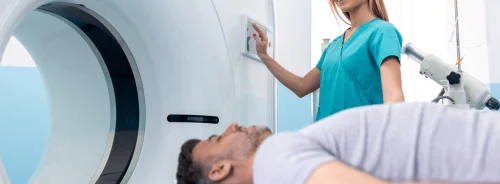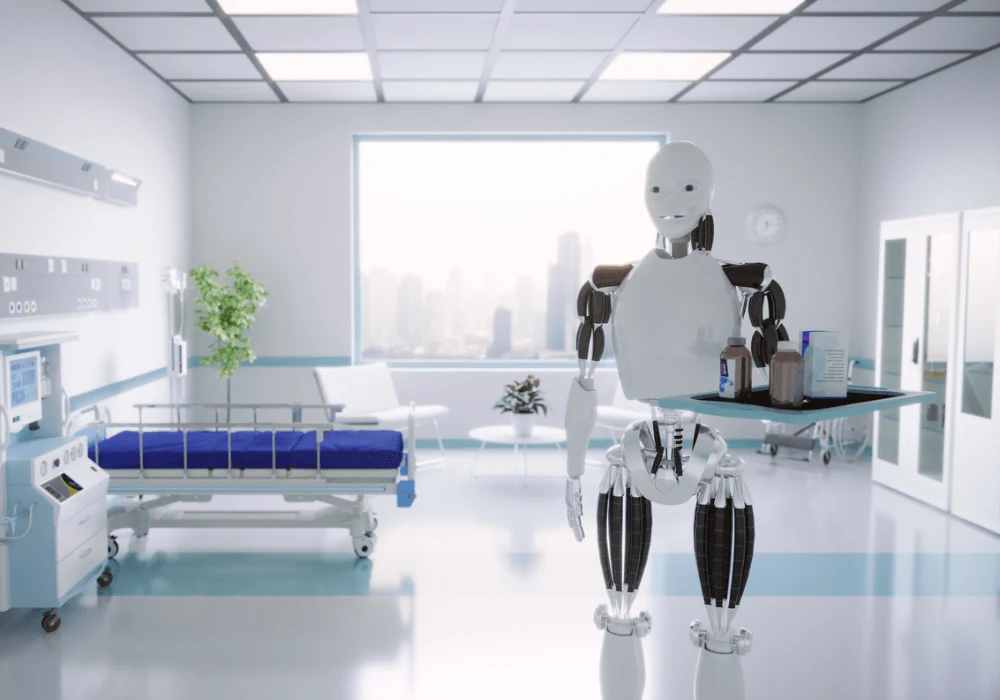In recent years, robotics has emerged as one of the fastest-growing fields in technology, surpassing even software and hardware innovation in its scope and potential impact. While robotics is transforming various industries, its applications in healthcare stand out as a game-changer. From warehouse automation to surgical assistance, robots are shaping the future of industries, particularly healthcare, creating new possibilities for efficiency, precision, and patient care.
The Robotics Powerhouses: Boston Dynamics, Tesla, and Amazon
Boston Dynamics has become a household name in the robotics world, producing robots designed to assist with tasks such as inspections, facility management, and warehouse automation. Their products provide practical solutions for organisations looking to streamline labour-intensive processes. Other major players like Tesla and Amazon are also pushing the boundaries of robotics. Tesla has announced plans to develop humanoid robots capable of performing dangerous or repetitive tasks, while Amazon has developed a sophisticated robotics infrastructure for its supply chain. Amazon’s Hercules robot, capable of lifting heavy loads and making complex decisions, is a prime example of how robotics can enhance operational efficiency in large-scale industrial settings.
Robotics in Healthcare: A Growing Opportunity
Robots are not entirely new to healthcare, but their role has become increasingly prominent in recent years. Surgical robots, such as Intuitive’s Da Vinci system, have revolutionized minimally invasive procedures, offering greater precision and efficiency. During the COVID-9 pandemic, healthcare robots like Mitra and Moxi became invaluable, performing tasks like patient communication and staff assistance without risking exposure to the virus. These innovations have highlighted the potential of robots to reduce human labour in healthcare, particularly in high-risk environments. As robotics technology advances, its integration into healthcare is expected to expand, covering areas such as pharmacy management, hospital supply chain logistics, and even laboratory automation.
Bridging the Gap: Robotics in Healthcare and Industrial Settings
While robotics has made significant strides in healthcare, there is an opportunity to integrate innovations from other industries into this sector. For example, healthcare facilities could borrow technology from industrial robots used in manufacturing and fulfilment centres, particularly in automation and labour-intensive tasks. Hospitals manage thousands of SKUs across various departments, and robotics could streamline the supply chain, making operations more efficient. Additionally, pharmacy automation, which still requires manual labour in many cases, could benefit from robotics technology similar to that employed in retail warehouses. Moreover, laboratory research and medical testing could also become more efficient by adopting intelligent, automated instruments that set the stage for AI-driven workflows.
The Road Ahead for Robotics in Healthcare
As robotics continues to evolve, its potential impact on healthcare is immense. However, adopting robotics in healthcare faces unique challenges, particularly regarding safety and accuracy. While mistakes in industrial settings might result in financial loss, errors in healthcare could cost lives. Therefore, rigorous testing, strict safety protocols, and near-perfect accuracy will be essential as robotics technology transitions into healthcare settings. The future of healthcare robotics lies in striking the right balance between leveraging innovative solutions from industries like manufacturing and maintaining the high standards of precision required in medical environments.
Source: FORBES
Image Credit: iStock






